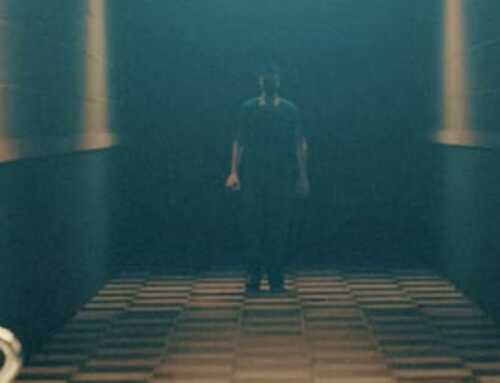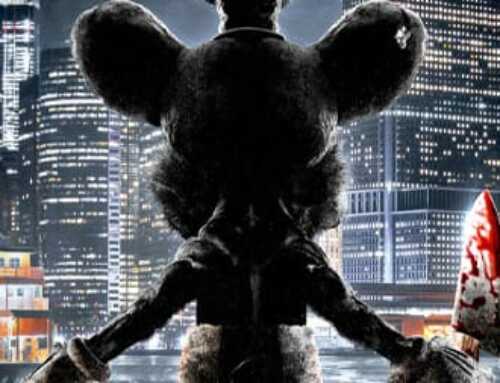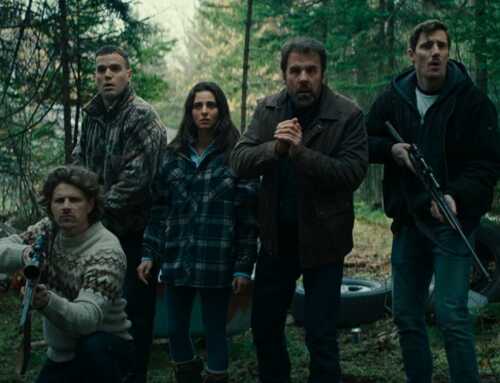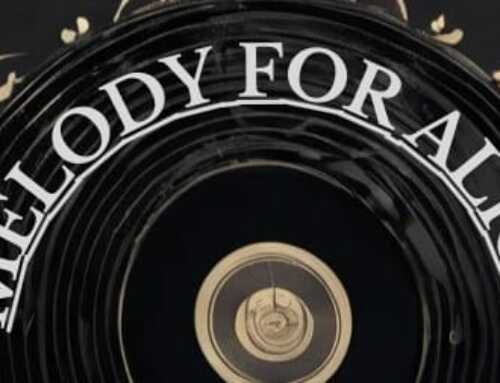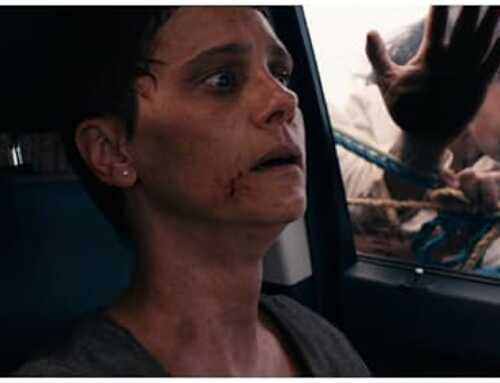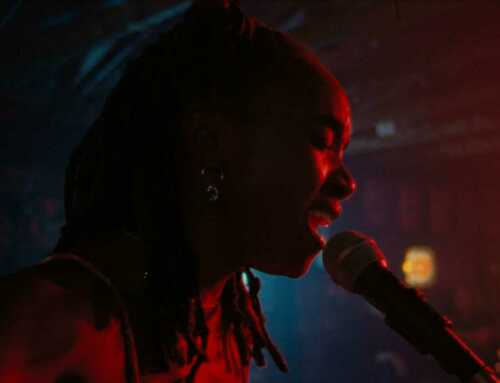Writer-director David Del Rio nice enough guy with a wicked sense of humor as indicated by the title of his new film, ROAD HEAD. Premiering at Cinequest this Friday, ROAD HEAD was written by Justin Xavier and tells the story of three friends who find two severed heads in the middle of nowhere on the way to a weekend getaway. Things go from bad to worse for the trio in the raucous horror-comedy and Del Rio clearly has a great time putting them through their paces.
We caught up with Del Rio on his new film and discussed how it came about, what it was like trying to tell people about his new project, and how they approached the movie.
HorrorBuzz: That’s a fun title.
David Del Rio: Yeah for a while when people would ask me what my next project would be I would hesitate. It basically got to a point where a friend of mine was like, “Road Head. That’s so much fun!” and I said, “Yeah, it is, isn’t it?!” That basically changed the game for me and I was in.
HB: How did this whole project get started?
DDR: I had been hired by some friends of mine that I had done two or three short films for and they mentioned that they had found funding for a feature. With Sick for Toys that was sort of my role in doing the sort of meeting of writer and producer with Jon Paul Burkhart. We did Sick for Toys, we had a crazy time doing it. Then they called me and said, “Hey listen, we got this script, writer Justin Xavier took about 5 days maybe even a week to get done and do you want to do it?”
I’m in a rare position as a director where, I mean, I have no meetings or anything. But I am in a rare position to have such great artists and producers have such trust in me so early on in the game enough to give you straight offers. I also had so much fun doing Sick For Toys, I loved working with them, I just wanted to do it again. This time, instead of a psychological thriller I got to do this ridiculous slasher. The change in genre also drew me in and I was on board.
HB: What cracked me up was how stoner it was.
DDR: Oh, I appreciate that! I think that the stoner thing, in this day and age, the more it’s pinpointed it sort of loses its magic, it’s just kind of there. It’s part of our lives now. The cast and I concentrated on where it was like, “Guys, this is just getting you through the day. You guys aren’t alcoholics you are just taking as many tokes as it takes or as much as your character wants.
As far as being a “Stoner Comedy,” I wouldn’t categorize it as one simple thing. “Stoner Comedy” is just part fo the blender of what that is.
HB: It’s interesting you say that because it was amazing to me how queer-friendly it was. Being gay wasn’t a joke, it wasn’t a punchline.
DDR: That was actually intended. What I found interesting is that I had never seen a member of the LGBTQ+ community be the hero of a horror film. That was the only thing. That is what the script provided. That’s actually one of the things that go me interested. I consider myself a cinephile, and I hadn’t seen that. The only way to diminish that story point would be to make a big deal out of it. It isn’t about the fact that it’s a gay couple. It’s the fact that it was human beings surviving. Their orientation doesn’t matter, I’m telling a story about a relationship. I am telling a story about a man losing the man he loves in a really, really ridiculous circumstance. I think that Damian, who plays Alex and Clayton who played Bryan did an absolutely fantastic job in understanding that the more they committed to playing the relationship, the sadder it was that Alex misses him or that Alex has to fight for his honor. That was really important to me.
HB: I hate to belabor the point but the relationships were treated with such normalcy. Even the psycho killers didn’t bat an eye that there was a drag queen in the encampment or that there was a gay couple. These are big things.
DDR: Yeah that scene, with everyone, that was a very difficult day in terms of everybody coming together. I’m talking from the producers to the grips, the staffers. Everybody had a say in how delicately we needed to handle that big scene. There was a lot of rewriting that day. If we were going to make a comment about something we had to say it with a point of view. We couldn’t just come up with it for the shock factor because that would be insulting. I was not in the business of insulting anybody. I was in the business of where is each and every character coming from? When we put the normalcy on top of that, then we get to actually concentrate on the story. We get to learn who these people are, what they want, what their backstory is and we give the film’s point of view. The point of view that we really wanted to convey was to NOT call it out. It was there, it was their present, that was very very important to us.
HB: You did that well.
DDR: And the Drag Queen was fantastic! Absolutely fantastic.
HB: What movies influenced the direction that you took this one?
DDR: Shawn of the Dead was a big one for me. Let’s take that scene where Simon Pegg is walking from his house to the gas station. It’s a beautiful shot where Edgar Wright is following Simon Pegg and in the background, zombies are eating people, zombies are walking through the streets, and he’s completely oblivious, not knowing what’s going on around him. I mean, I have a movie where someone is dressed as a medical executioner and chopping people’s heads off. I wanted to tap into the question, “What if this happened to us?” What was funny in Shawn of the Dead is that they played the reality of the situation. And again, “How do we kill the Zombies?” We play “Don’t Stop me Now” from Queen to lure them in and beat them with sticks and yet it still honored the horror of a zombie movie. Shawn of the Dead was a real inspiration in terms of how they balanced that. I wanted to reflect how ridiculous it was but I did not want to miss the fact that there are two heads on the road and a person with a humongous sword is the one that did it. That’s pretty serious shit.
HB: We had a lot of fun with how absurd it was, going to a lake and there was no lake there. That actually happened to me.
DDR: Is that right? That is so great to hear.
HB: Who knew China Lake was a military base?
DDR: The genesis of this project is that the screenwriter and the producer saw this dry lake and thought, “Oh we have to make a movie around this.” I mean you get your inspiration from anywhere.
HB: Thank you for making a fun movie that keeps things Queer positive.
DDR: Oh, I gotta plug something! I’m on a show on ABC, on April 13th. It’s called Baker and the Beauty. It’s a very romantic comedy.
HB: Very cool! We will make sure to include that.


